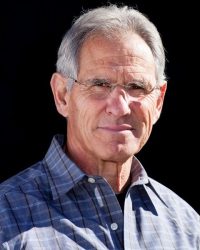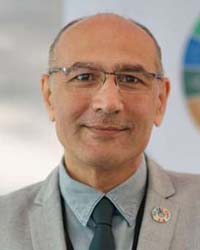PRESENTATIONS: MINDFULNESS FOR EARTH VIRTUAL RESEARCH SYMPOSIUM 2022


About: Mindfulness for Earth Virtual Research Symposium
Celebrating the World Environment Day, Mindfulness for Earth Virtual Research Symposium (on Sunday, 5th of June 2022) was organised in Association with STOCKHOLM+50. Stockholm+50 is about reflecting, connecting and accelerating urgent action for our Mother Earth. Therefore, the VRS highlighted the importance of understanding through a scientific basis of the role of mindfulness in addressing connections between the mind’s habituations or the ‘inner climate’ and the ‘outer climate’ in protecting our Mother Earth from its multiple devastations. The first such event brought together renowned meditation masters, scientists, academics and climate activists (see below) for a rich and inspiring dialogue. The Virtual Research Symposium (VRS), presented cutting-edge scientific research combining the methods of mindfulness and sustainability for addressing the triple planetary crisis. The VRS featured some international speakers including the father of the mindfulness movement in the West, Dr. Jon Kabat-Zinn – please see below for the names, titles and abstracts presented at the VRS 2022. The VRS will be an annual event – please check back on our website for more information on the next VRS 2023.

Keynote Address by Dr. Jon Kabat-Zinn: “Taking Your Seat and Taking a Stand: The Response-Abilities of Climate Awareness at an ‘All Hands On Deck’ Moment on Planet Earth”
In this talk, Jon will describe the intersection of being and doing in regard to mindfulness as a formal meditation practice, on the one hand, and on the other, an active ethical commitment to minimize harm of all kinds and optimize well-being. In this case, the harm is to the planet itself and the web of interconnectedness that sustains all life through planetary homeostatic processes. Waking up to things as they are at this moment is not a luxury but an absolute necessity. It includes taking creative actions in whatever ways we can, individually and collectively, to restore and protect planetary wholeness for the sake of all sentient beings, and particularly those who have contributed the least to global warming but are or will be suffering from its effects the most.

Presentation by Jamie Bristow: “Reconnection: Meeting the Climate Crisis Inside Out”
Climate change is a physical reality, demanding political and practical solutions. But its inner dimension, overlooked entirely by mainstream approaches, is a crisis of human relationship. Over the last two years, Jamie Bristow and his colleague Professor Christine Wamsler have been researching the role of mindfulness and compassion practices in addressing the endemic disconnection from self, others and nature at the root of the climate crisis. Along with writer Rosie Bell, they have now authored the first public policy report on the subject – Reconnection: Meeting the Climate Crisis Inside Out. In this session we will explore the cognitive and emotional foundations of conscious connection and discuss the potential for mindfulness and compassion practices to be developed into powerful enablers of reconnection, fostering both greater resilience and more appropriate responses to global sustainability crises. Jamie will draw upon the emerging evidence base linking internal transformation to sustainability, and broader academic literature on the prosocial impact of mindfulness and compassion training.

Presentation by Liane Stephan: “Inner green Deal”
Europe is determined to become the first climate-neutral continent. This requires inspiring, compassionate and effective leaders at all levels of society. We have developed a modular “Climate Leadership” program that explores the inner human dimension of sustainability and leads to a shift in consciousness towards more sustainable action. Environmental compassion has been one of the key practices leading to more pro-environmental behaviour. We will talk about why it is so important to reconnect to our human nature in regard of the climate crisis, present the structure and content of the program, first results (in collaboration with Lund University Centre for Sustainability Studies) as well as a short practice of environmental compassion.

Presentation by Bhante Chandaratna: “Thought Proliferation & Mindfulness in Protecting the Environment”
Thinking is a skill all human beings share. This skill when not handled properly can lead to overthinking, obsessive thinking and mental proliferation. Mental proliferation known as papañca in Pāli literature is explained in many suttas and their abandonment is also highly praised by the Buddha. The impact of mental proliferation on mental health is crucial as that causes to increase longevity and intensity of symptoms of certain mental illnesses. For example worry has been shown to magnify both anxious and depressive symptoms, while rumination exacerbates depression by binding repetitive thoughts to negative beliefs and attitudes. Different kinds of methods explained in Sutta piṭaka to minimize papañca can be broadly recognized as behavioural, mental and cognitive. By properly analysing and discussing these methods, one can retrieve really interesting ancient wisdom which would be extremely useful for today’s climate crisis.

Presentation by Dr. Iroja Caldera: “Initial study on the possible impact of mindfulness on seed germination of Vigna radiata L.”
Mindfulness is the practice of purposefully focusing your attention on the present moment. In many forms of meditation, mindfulness is practiced. The present study was conducted to provide insights into the possible impact of mindfulness on seed germination. Seeds of mung bean (Vigna radiata L.) was allowed to germinate on identical trays (containing 100 seeds each) at six locations (n=2400) within a forest-based monastery This included areas where meditation was practiced by experienced monks, by lay persons on short term retreats and areas where meditation was not practiced. The study group of laypersons included two groups, i.e., experienced meditators and novices at independent times. Seedling vigour was assessed by the rate of seedling germination and by measuring seedling growth rate. Data collected included counting the number of germinated seeds and measuring root and shoot length of seedlings using a vernier caliper. Environmental sensors were used to measure temperature and relative humidity. The main objective of the study was to test the hypotheses that a) mindfulness meditation had a positive impact on seed germination and b) experienced practitioners had a greater influence on the impact.

Presentation by Dr. Iyad Abumoghli: “Contribution of VRS towards Stockholm +50 ”

Presentation by Dr. Kumanga Andrahennadi: “The AMBP Eco-Contemplative Framework: Addressing the Connection between the Climate Crisis and Mental Health Crisis”
